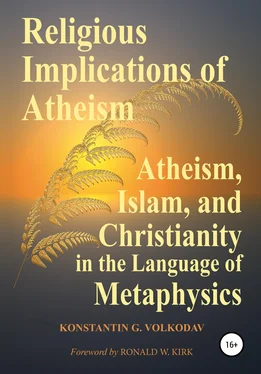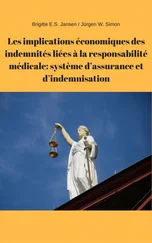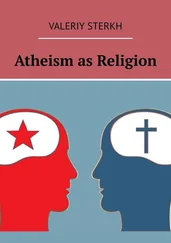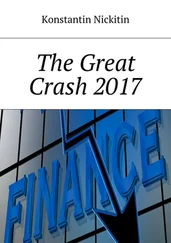Therefore, those people who have not yet grown to understand it may simply not notice the value and uniqueness of something. For example, paintings by the French artist Camille Pissarro sold very poorly during his lifetime. One day they paid for his painting with just one cake. During the Franco-Prussian war, soldiers lodged in his house (in his absence). They used canvases instead of aprons, laid them on the floor, and threw them in the trash heap. About one and a half thousand paintings were damaged. Now paintings by Camille Pissarro cost hundreds of thousands of dollars! It is impossible to assess anything adequately until the very criteria by which they are judged are inadequate. It makes no sense to throw pearls in front of pigs, for them it is no more valuable than sand.
Krauss’s attitude to religion does not allow throwing pearls in front of him. How can Krauss, who has not studied Islam, be so self-confident in claiming that Islam is no different from other religions? He says that in Islam, as in Rig Veda or beliefs of the ancient Egyptians, it is stated that the universe had a beginning. Yes, but the beginning of the universe is understood in different ways everywhere! The so-called Abrahamic religions (Judaism, Christianity, and Islam) profess that time, space, matter (and all the laws of physics) were created by God out of nothing (Lat. ex nihilo, Gr. οὐκ ἐξ ὄντων). In this they fundamentally differ from other religions, where it is said that the universe is either eternal or has a beginning, but is created by God from himself or from eternally existing material. Many religions (Gnosticism, Neo-Platonism), gravitated towards pantheism, that is, towards the elimination of the substantial difference between God and the universe. Therefore, these religions essentially deified nature. Atheism simply replaces God with nature. That is why atheists insist (without proof, of course) that at least some attributes of the material world (the path is not matter, so at least its laws) exist eternally (and even outside of time). This is where “the needle of Koshchei the Deathless” is hidden.
Could the Universe Have Come into Existence
from Non-Existence by Physics?
From time immemorial, people believed that without a cause nothing comes from nothing. [12] . Lat. “ex nihilo nihil fit”.
This principle was formulated back in the fifth century BC in the philosophy of the era of Parmenides and has since been considered an obvious truth. Therefore, the best way to get people’s attention is to show that it is not.
In the 1830s, the Scottish illusionist John Henry Anderson (1814–1874) came up with a trick, the demonstration of which gathered full houses. The magician shows the audience his top hat, demonstrating that there is nothing in it. Doubters may even pick it up and check it out. After several magical passes, he puts the hat on the table or makes an arc movement with it in the air, as if scooping something up, and immediately pulls out a rabbit or even two in a row from the hat. The secret of performing the trick is that the illusionist discreetly puts the rabbits into the hat from the secret pockets of his tailcoat or from under the table.
Now, getting a rabbit out of a hat, in which initially there is nothing, you will surprise no one, but the concept of the formation of the universe from “nothing” has become the excitement of people’s minds. The prerequisites for this concept have been gradually taking shape since the beginning of the twentieth century. Protestant rationalism grew out of atheistic scientism and positivism. These doctrines deny philosophy and absolutize the role of natural sciences and mathematics not only in the epistemology of science, but also in explaining everything in general. They say that physics and mathematics can explain any phenomenon (even in the field of culture and anthropology!), If not just today, then in the near future. Several generations of scientists have already been brought up in the mainstream of this paradigm of thinking.
It is not surprising, therefore, that when physical and mathematical models had developed sufficiently, cosmologists began to try to answer the philosophical question about the beginning of the universe. [13] . In 2003, cosmologists Arvin Borde, Alan Guth, and Alexander Vilenkin proved the singularity theorem. It says that the expanding space time does not continue infinitely into the past, but has a beginning, that is, the universe has a beginning. See Borde et al., “Inflationary space-times are not past-complete.”
In 1973, the Soviet physicist P. I. Fomin and a little later the American physicist E. Tryon [14] . “In 1973, I proposed that our Universe had been created spontaneously from nothing (ex nihilo), as a result of the established principles of physics,” Edward P. Tryon (prof. of Physics, New York University), “What Made the World?” 14.
announced the possible emergence of the universe from “nothing”. [15] . Климишин, Релятивистская астрономия , 243.
In 1988, the journal Priroda published the last article by Ya. B. Zeldovich entitled “Is it possible for the universe to form ‘out of nothing’?” [16] . Зельдович, “Возможно ли образование Вселенной ‘из ничего’?” Природа 4 (1988).
with a positive answer to this question. [17] . However, in the Afterword to it, Academician A. D. Sakharov considered it necessary “to point out the great uncertainty in our understanding of the situation. This uncertainty is deeply fundamental, even philosophical. Philosophically acute is, in particular, the question of the so-called anthropic principle, which explains the peculiarities of our universe by the fact that only in such a universe could intelligent life arise, in contrast to an infinite number of other, spontaneously arising ‘dead’ universes.”
In 2012 L. Krauss published the book A Universe from Nothing . [18] . Krauss, A Universe from Nothing , Preface.
These and many other similar works of scientists on the emergence of the universe can be figuratively summarized like this:
“With the help of what did the universe come into existence?”
“With the help of physics (i. e., the totality of the laws of matter).”
“With the help of what did physics come into existence?”
“Eh . . ., hmm . . . with the help of physics.”
This type of “proof” is called a “vicious circle”. There is a tale about Baron Munchausen, who pulled himself out of the swamp by the hair with his horse. Alternatively, the same, about the boy who pulled himself out of the swamp by the laces of his own shoes. This is a metaphorical image of how physics created itself with the help of physics. The universe, as it were, pulled itself out of “nothing” by its “own laces”. This metaphor was even taken seriously as an explanation, and the process itself was called “bootstrap”. The universe, as it were, spontaneously aroused in itself all the energy that was necessary for the “creation” and “revitalization” of matter, and initiated the explosion that generated it. This “self-extension”, of course, is absurd and is a logical error, but nothing else can be invented in this atheistic paradigm. Scientists and positivists categorically reject philosophy, since for them “god” is physics, and its “prophet” is mathematics. Therefore, when asked about the origin of physics, they have to build a vicious circle of evidence. After all, otherwise their minds will go off the “rails” on which they were put at school and at institute. [19] . Albert Einstein remarked on this topic, “The only thing that interferes with my learning is my education.” (Quoted from: https://www.brainyquote.com/quotes/albert_einstein_110208)
Читать дальше

![Константин Бальмонт - Константин Бальмонт и поэзия французского языка/Konstantin Balmont et la poésie de langue française [билингва ru-fr]](/books/60875/konstantin-balmont-konstantin-balmont-i-poeziya-francuzskogo-yazyka-konstantin-balmont-et-thumb.webp)










